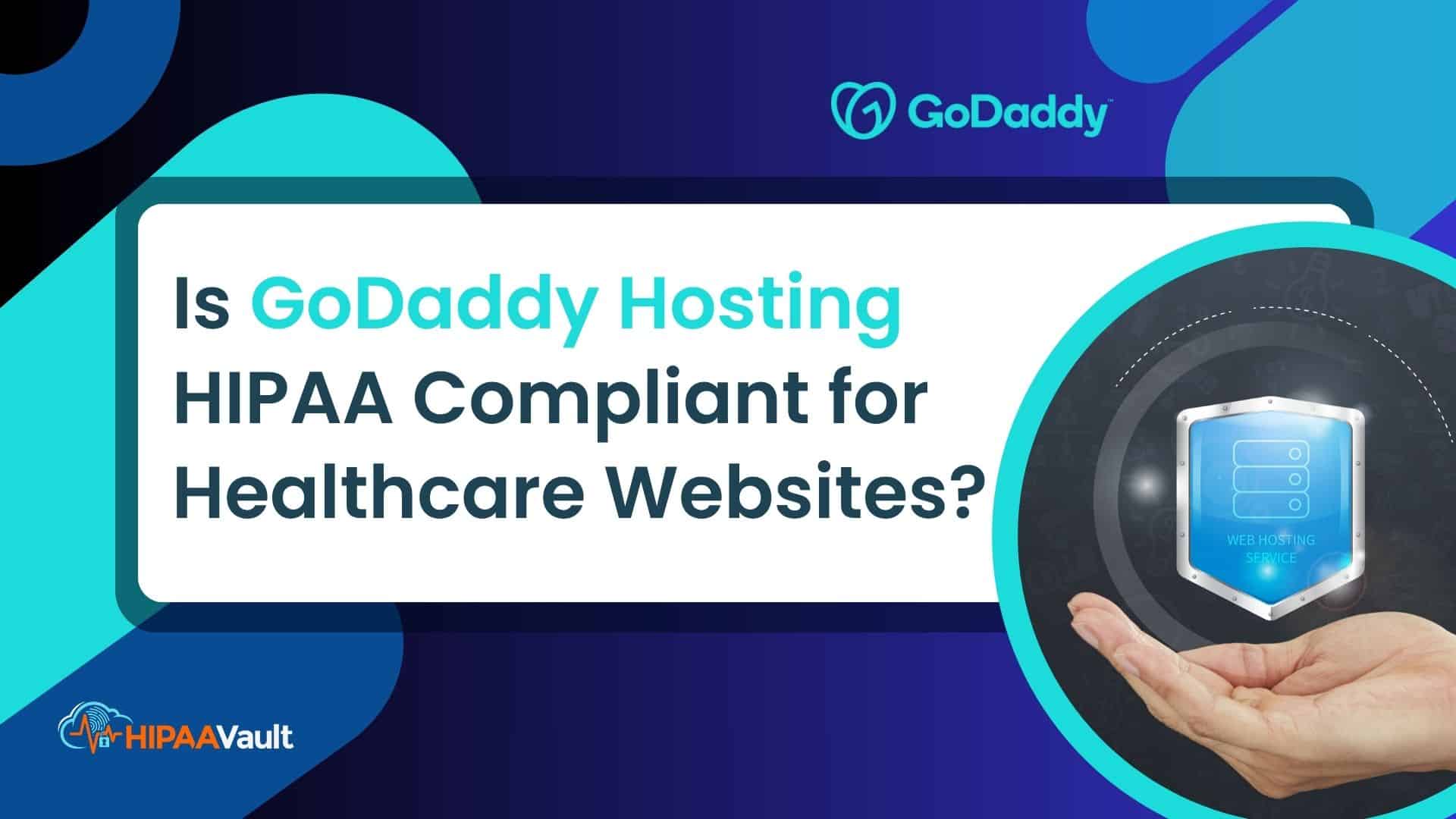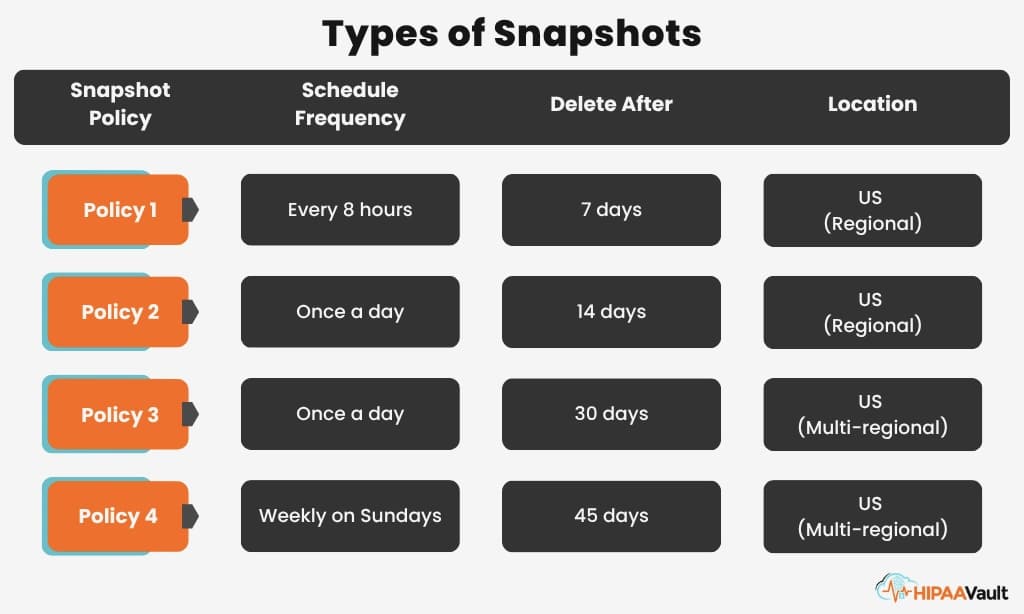GoDaddy is one of the most recognizable names in web hosting and domain registration. Its affordability and ease of use make it attractive for small businesses — including healthcare providers building websites for patients.
But when your website processes protected health information (PHI), affordability alone isn’t enough. The key question becomes: is GoDaddy HIPAA compliant for healthcare websites?
→ Quick Answer: GoDaddy hosting is not HIPAA compliant. The company does not sign Business Associate Agreements (BAAs), which are mandatory for any vendor that handles PHI under HIPAA. Without a BAA, healthcare organizations cannot legally store or transmit PHI using GoDaddy services.
What HIPAA Compliance Requires for Healthcare Websites
To understand why GoDaddy falls short, it’s essential to review what HIPAA compliance entails. Under the HIPAA Security Rule (45 CFR §164.302–318), healthcare websites must implement:
- Administrative safeguards (e.g., risk analysis, workforce training)
- Physical safeguards (e.g., facility access controls, device security)
- Technical safeguards (e.g., encryption, audit logs, access controls)
Most importantly, any third-party vendor that handles PHI must sign a Business Associate Agreement (BAA) — a legal contract defining responsibilities for protecting health data.
Without this agreement, the service cannot be HIPAA compliant, no matter how secure its infrastructure may appear.
→ Need to ensure full HIPAA compliance? Get a HIPAA Hosting Quote — quick setup, no credit card required.
Secure Your Healthcare Operations with Full HIPAA Compliance
HIPAA Vault provides end-to-end compliance services — from secure hosting to expert risk assessments and 24/7 support.
Get a Free Compliance AssessmentIs GoDaddy HIPAA Compliant?
In short: No. GoDaddy does not advertise or support HIPAA-compliant hosting plans. According to GoDaddy’s customer agreement and support documentation, the company does not sign BAAs for hosting or email services.
That means any PHI stored, transmitted, or processed through GoDaddy’s shared, VPS, or managed hosting would place your organization at risk of noncompliance.
GoDaddy’s platform can support SSL/TLS encryption and some data isolation — but HIPAA requires documented security accountability through a signed BAA. Without it, you cannot rely on GoDaddy for regulated healthcare data.
GoDaddy’s Official Position on HIPAA & BAAs
HIPAA’s Privacy Rule (45 CFR §164.502) mandates that business associates sign a Business Associate Agreement with covered entities.
GoDaddy’s official Customer Agreement explicitly disclaims responsibility for HIPAA-level protections. The company does not offer a HIPAA-specific service tier, nor does it reference BAAs in any legal or compliance documentation.
This lack of a BAA disqualifies GoDaddy as a compliant hosting provider for healthcare use cases — even if its infrastructure offers standard encryption or access controls.
Technical and Administrative Safeguards — Where GoDaddy Falls Short
GoDaddy’s hosting platform includes features like:
- SSL/TLS certificates for data encryption in transit
- AES-256 encryption at rest on certain managed plans
- Basic access control and firewall protection
However, these are generic security measures, not verified HIPAA safeguards. For example:
- Encryption key management is handled by GoDaddy, not your organization.
- Shared hosting environments increase the risk of cross-tenant data exposure.
- No dedicated compliance documentation or audit reporting is available.
HIPAA requires granular audit controls, breach notification protocols, and documented risk management — all of which are outside GoDaddy’s scope.
→ For comparison, HIPAA Vault’s HIPAA-Compliant Hosting includes 24/7 intrusion detection, hardened firewalls, and a signed BAA — covering both infrastructure and data-handling obligations.
Can You Configure GoDaddy for HIPAA Compliance?
Technically, you can add layers of protection on top of GoDaddy hosting, but you still won’t achieve full HIPAA compliance without a BAA.
If you choose to stay with GoDaddy for your domain or non-regulated website, consider these configurations for improved security (but not compliance):
- Implement Full HTTPS using third-party SSL certificates.
- Enforce Access Controls — enable MFA and unique user IDs.
- Encrypt Databases at the Application Layer.
- Maintain Activity Logs to monitor user actions.
- Use a Separate, HIPAA-Compliant Email Provider such as HIPAA Vault Email.
These steps enhance your security posture — but they do not replace a signed BAA or GoDaddy’s lack of healthcare compliance infrastructure.
Common Pitfalls When Using GoDaddy for Medical Data
Many healthcare organizations assume that encryption or SSL alone equals HIPAA compliance. Unfortunately, that’s a common misconception.
Common compliance pitfalls include:
- Hosting contact forms that collect PHI on non-compliant servers
- Using GoDaddy email accounts for patient data
- Assuming paid tiers (e.g., VPS, dedicated servers) are compliant
- Failing to perform or document annual risk assessments
Without a BAA and ongoing security oversight, any PHI exposure on GoDaddy infrastructure could trigger HIPAA violations — potentially resulting in steep fines.
→ Need help identifying vulnerabilities? Schedule a Free HIPAA Risk Assessment
HIPAA-Compliant Alternatives to GoDaddy Hosting
If your healthcare organization requires a compliant, scalable hosting solution, choose a provider that specializes in HIPAA-compliant infrastructure and signs a BAA.
HIPAA-Compliant Hosting with HIPAA Vault
HIPAA Vault offers fully managed HIPAA hosting designed for healthcare and telemedicine applications. Features include:
- Pre-hardened Linux and Windows servers
- End-to-end encryption (in transit and at rest)
- Continuous monitoring and patching
- Intrusion detection and prevention systems
- 24/7 support by certified HIPAA security experts
- Signed Business Associate Agreement
These safeguards ensure your website, data, and communication channels meet every HIPAA requirement.
→ Request a Consultation — Contact HIPAA Vault today for a quick setup
How to Migrate from GoDaddy to a HIPAA-Compliant Host
Migration doesn’t have to be complex. Most healthcare practices follow this process:
- Keep your GoDaddy domain for convenience.
- Point your DNS to HIPAA Vault’s secure servers.
- Migrate your website and email to compliant environments.
- Receive a signed BAA and compliance documentation.
- Conduct post-migration verification (penetration testing, log validation).
→ See our HIPAA Cloud Hosting and Penetration Testing Services for additional protection layers.
Final Verdict — Should Healthcare Providers Use GoDaddy Hosting?
No — GoDaddy hosting is not HIPAA compliant.
While it’s suitable for small businesses and general websites, GoDaddy’s refusal to sign BAAs and lack of healthcare-grade safeguards make it unsuitable for hosting PHI.
To protect your patients’ data and maintain regulatory compliance, choose a hosting provider that:
- Signs a Business Associate Agreement
- Implements end-to-end encryption and audit logging
- Offers continuous monitoring and breach notification
- Provides expert HIPAA support
HIPAA Vault offers all of the above — plus proven reliability, uptime guarantees, and responsive 24/7 support.
→ Download the HIPAA Compliance Checklist to evaluate your current setup and close compliance gaps: Get it here.






